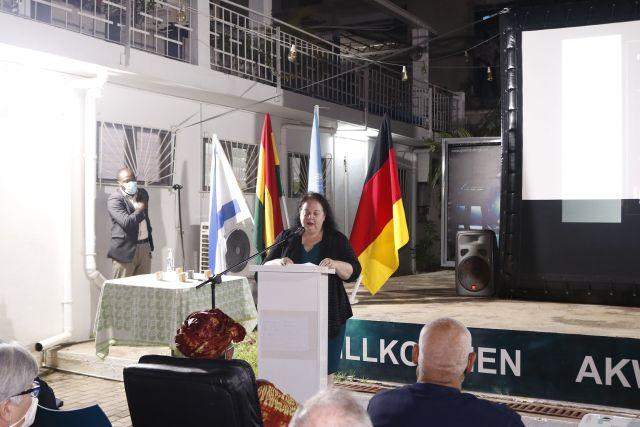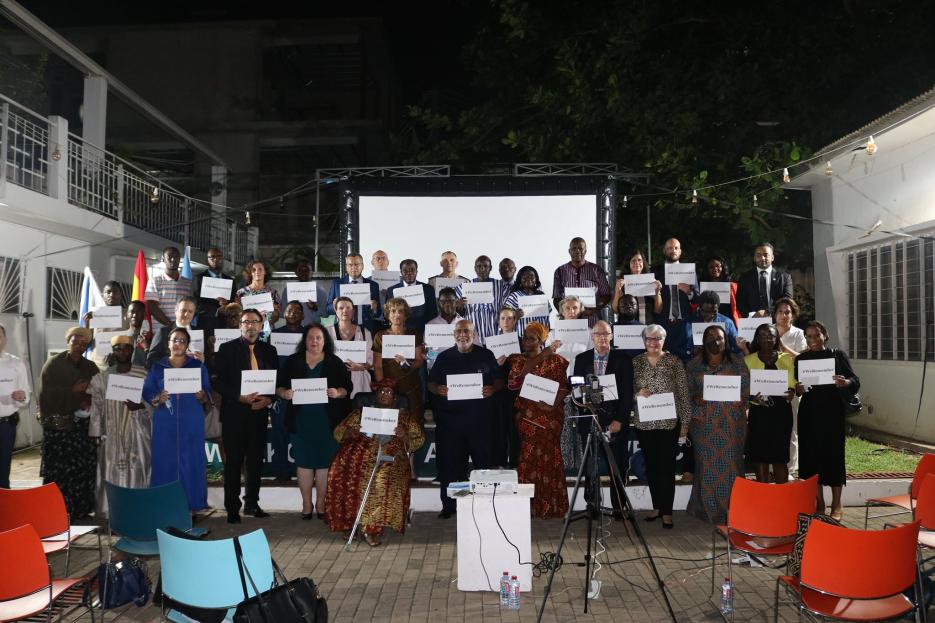On Thursday, 28 January, the Embassy of Israel in Accra in collaboration with the Embassy of the Federal Republic of Germany, and the UN in Ghana marked the 2022 International Holocaust Remembrance Day in Accra, Ghana.

On Thursday, 28 January, the Embassy of Israel in Accra in collaboration with the Embassy of the Federal Republic of Germany, and the UN in Ghana marked the 2022 International Holocaust Remembrance Day in Accra, Ghana.
The day was marked with a presentation on the topic “Israeli Theatre and the Holocaust: A Historical Perspective on the Aesthetical and Ethical Challenges by Dr. Roy Horovitz, from the Bar-Ilan University in Israel. It also hosted Prof. Esi Sutherland from the Institute of African Studies, University of Ghana. She gave a presentation on the topic Using Arts and Culture in Promoting Tolerance in Ghana.
In a statement, H. E. Shlomit Sufa emphasized on the prevalence of Holocaust denial, which is continuously on the rise, especially online and as the events of the Holocaust move farther in time. “Additionally, the inevitable passing of Holocaust survivors certainly calls for the need to take a more proactive approach towards Holocaust Denial,” she added.

According to H. E. Shlomit Sufa, Holocaust denial refers “specifically to any attempt to claim that the Holocaust did not take place, and may include publicly denying or calling into doubt the use of principal mechanisms of destruction such as gas chambers, mass shooting, starvation and torture or the intentionality of the genocide of the Jewish people. Holocaust denial is an expression of antisemitism.”
On his part, the Ambassador of the Federal Republic of Germany to Ghana, H. E. Daniel Krull, expressed worry about the growing incidents of anti-Semitism around the world. “Anti-Semitism, xenophobia, genocide, all these evils do not pop up overnight, but grow over time. We all need to remain vigilant; we must not allow the seeds to take root – never again and this requires that we stay alert and that we are prepared and willing to take action when ever need be,” he added.
Mr. Charles Abani, the UN Resident Coordinator in Ghana called on Ghanaians to learn lessons from the Holocaust and endeavor to do away with ethnic, political differences and other negative attitudes that infringe upon the rights and freedom of women, girls, specific groups and less privileged in the society. “The Holocaust was a turning point in history, which prompted the world to say never again. We therefore must do our utmost so that all peoples may enjoy the protection and rights of which the United Nations stands,” he added.
